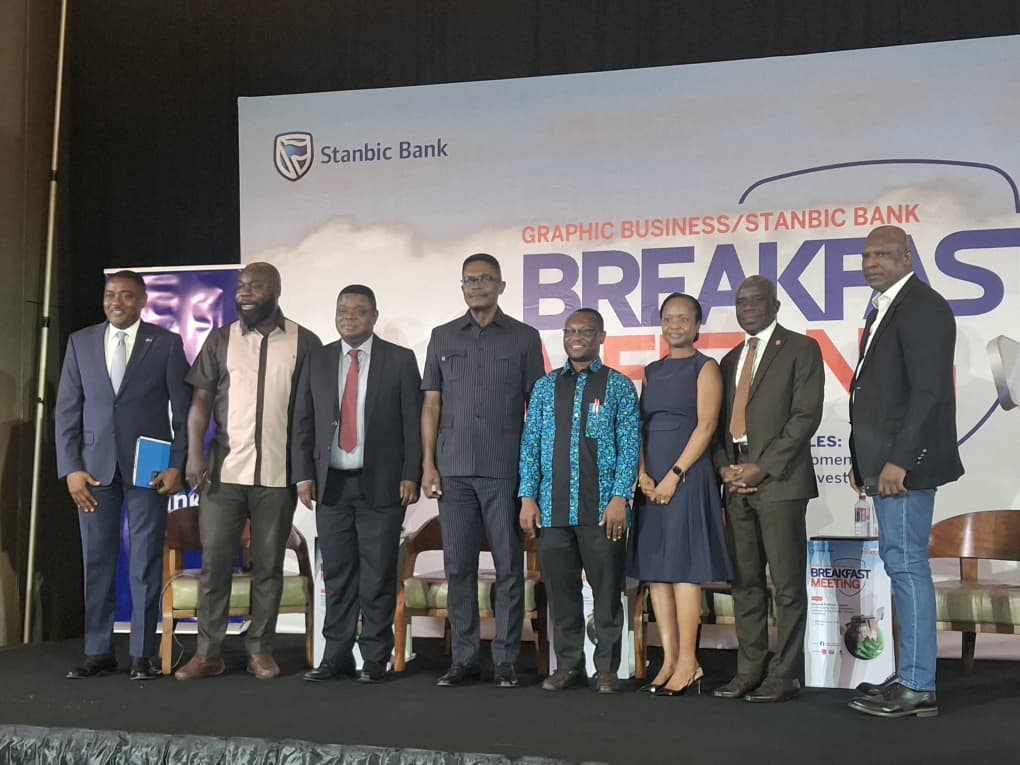The Chief Executive Officer of Stanbic Bank Ghana, Kwamina Asomaning, has highlighted the importance of economic policy continuity in national development.
According to him, the long-term consistency strengthens public trust and improves investor confidence.
He stated this at the Graphic Business–Stanbic Bank Breakfast Meeting held on the theme “Beyond Political Cycles: Creating Long-Term Development Pathways for Sustainable Investor Confidence.”
“Continuity does not undermine democracy; it strengthens it. When citizens see that national projects survive beyond election cycles, trust in both government and democracy deepens. Investors also gain confidence when they know that commitments made today will not be abandoned tomorrow. So if we truly want this plan to work, wouldn’t you agree it must be approved by Parliament, giving it legitimacy beyond party lines and ensuring continuity regardless of political transition.
The Managing Director of the Graphic Communications Group, Ato Afful, called for disciplined and strategic economic management after Ghana exits the IMF programme.
He questioned the country’s reliance on externally designed frameworks and argued for greater ownership of Ghana’s development direction.
“People maintain that when we go under the IMF, and they say this is the 17th time, we are inclined to be constrained and we behave somewhat better. Must we be guided by new imperial structures and other neoliberal constructs to define what it is that we want to become? I think the answer, as we’ve heard for almost 70 years of our independence, is that we are capable of defining our own affairs,” he said.
Economist Prof. Peter Quartey urged the government to prioritise borrowing from sources that offer lower interest rates in order to protect the country’s debt sustainability.
He advised a clear order of preference in mobilising funds.
According to him, “We should prioritise our source of borrowing first. Let’s try the multilateral sources. Ideally, it should be domestic resources, and when we have exhausted that and still need to borrow, then we look at multilateral and bilateral sources. Their rates are quite reasonable”.
“There is the Carbon Fund, there is the Green Fund and all the other funds that are cheaper, and then we can start thinking about the capital market. But if our risk level is reduced, I believe we can get decent rates. If our macro indicators are unstable and our risk level is high, then we will be paying higher prices. So all of this has to be considered in borrowing.”
The Breakfast Meeting brought together government officials, private-sector executives and industry experts to explore strategies for strengthening investor confidence and enhancing economic resilience.
The event was organised by Stanbic Bank Ghana in partnership with the Graphic Communications Group, Joy News and the Labadi Beach Hotel.
DISCLAIMER: The Views, Comments, Opinions, Contributions and Statements made by Readers and Contributors on this platform do not necessarily represent the views or policy of Multimedia Group Limited.
DISCLAIMER: The Views, Comments, Opinions, Contributions and Statements made by Readers and Contributors on this platform do not necessarily represent the views or policy of Multimedia Group Limited.
